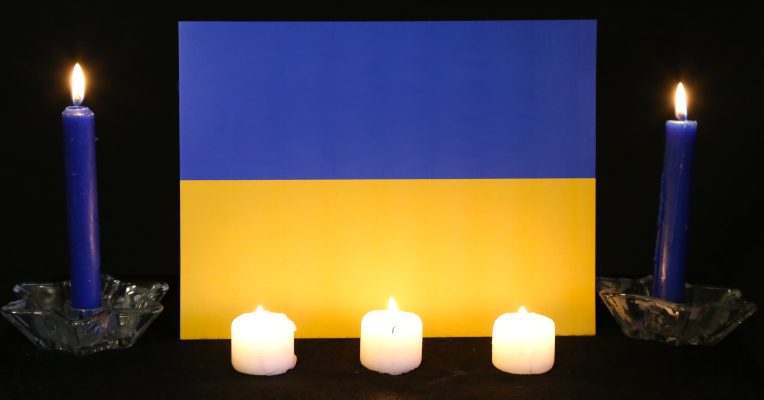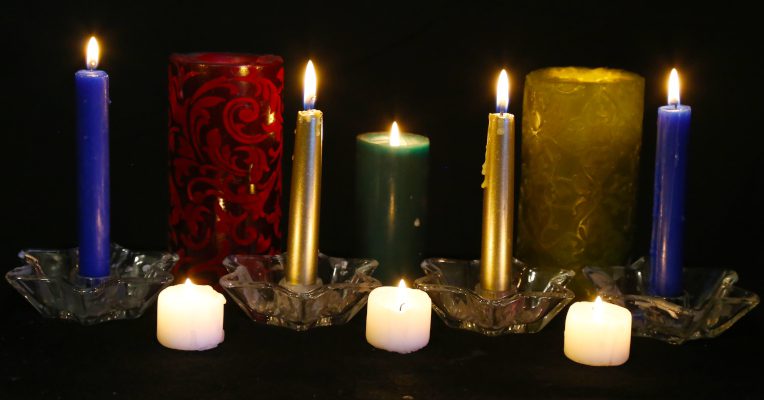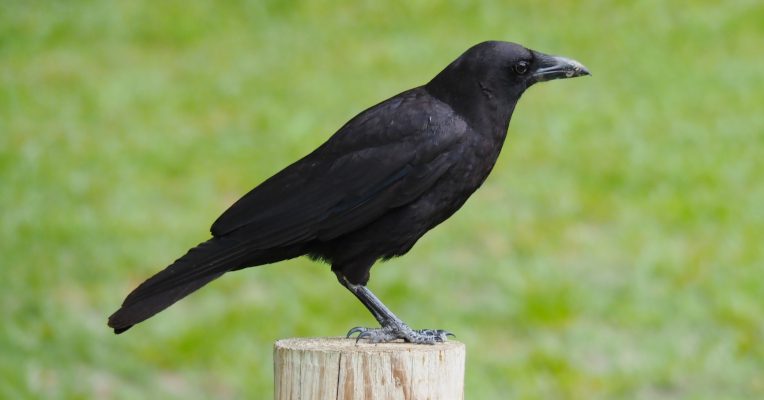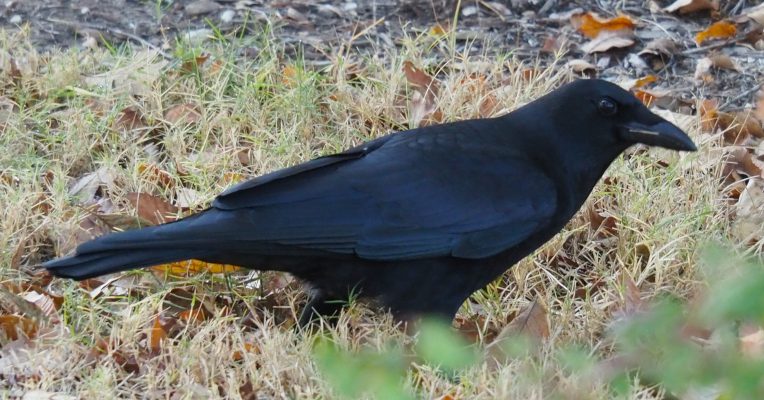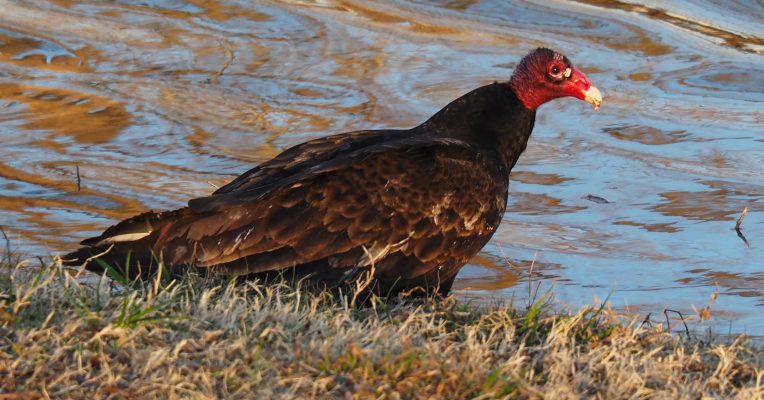I’ve been praying for Ukraine ever since the Russian invasion began.
I’ve been praying to Whoever will listen. I’ve been asking that the war be ended swiftly, peacefully, and justly. That’s rather vague, but it’s all I’ve got. I’m a Pagan and a polytheist and praying is what I do.
Many people from many different religions are also praying for Ukraine. There is little we can do tangibly, so we do what we can intangibly.
I’ve seen a few people questioning if this is the right thing to do. One said prayer was useless. Obviously I don’t agree, but they made a valid point that we should do something tangible, even if it’s just to give money to organizations that are working on the ground in the region.
Others had concerns about the ethics of praying for people we don’t know, in ways they may not approve. I saw some good, honest conversation around that topic – I’m not going to recap or restate it.
Instead, I want to examine some of the theological issues involved with praying for Ukraine. What are we doing, why are we doing it, and what does it accomplish?
I’m afraid I have more questions than answers, but that’s not a bad thing. The modern polytheist movement doesn’t have a lot of formal theology yet – we have to figure it out. And as someone who believes in the primacy of experience, there’s no better way to approach that process than with real live situations.
Prayer is talking to the Gods
There is much that can be said about prayer, what it is, and how to do it. But at it’s core it’s very simple: prayer is talking to the Gods.
Sometimes we talk to Them to tell Them how much we appreciate Their presence and blessings in our lives. Sometimes we give thanks for things They’ve done for us. Sometimes we recount Their mighty deeds, not because They have fragile egos and need our praise, but to remind ourselves of Their power and virtue.
And sometimes we ask for Their help.
Done wrong, this is like a four-year-old sitting on Santa’s lap. Done right, we speak the deepest yearnings of our hearts.
Done best, prayer is addressed to a specific divine person. I do not believe “the Universe” hears our prayers, but the Gods we follow – and who are around us – do. When in doubt, simply pray.
Does prayer influence the Gods?
Danish philosopher Søren Kierkegaard (1813 – 1855) said “prayer does not change God, but changes him who prays.” Kierkegaard was writing as a Christian, but his thoughts were in alignment with the Pagan Neoplatonist Iamblichus, who said much the same thing 1500 years earlier.
Prayer draws us closer to our Gods and helps us see things from Their perspective. That in turn helps us understand why many times our prayers are not answered in the way we would prefer.
But just as we give things to friends and family because they ask us for them, I believe our Gods sometime grant us favors simply because we request them. They will never give us anything that is not in alignment with Their virtues and Their divine will, but enough people have reported enough answered prayers that I have to believe that at least occasionally, They are moved by our requests.
I have occasionally been told “don’t ask Me for that – go get it yourself.” But I have never been told that all my requests were improper or unwelcome.
All I know for sure is that it is good to speak the yearnings of our hearts. And so I pray, and I pray for Ukraine.
Praying for those of other religions
The majority of Ukrainians are Orthodox Christians. About 11% are unaffiliated, and many of those are atheists. There are a small number of Jews and followers of most other world religions. There are a few Pagans, but as in most places, their numbers are tiny.
The question of praying for people of other religions is always sensitive. It shouldn’t be this way – “I’ll pray for you” should always mean “I’ll ask for your well-being in the most sacred way I know.” Unfortunately, in a culture dominated by a proselytizing religion, too often it means “I’ll pray that you convert to my religion.” That’s coercive and offensive, and it leads to people screaming “don’t pray for me!”
When people say not to pray for them, they’re saying they think your prayers are ineffective or even counterproductive. Mainly, they’re saying they disagree with your religion so strongly they would rather reject your offer of good will than accept that there might be some value to it.
This is the product of a monotheist “One True Way” worldview.
Ethically praying for people of other religions simply requires praying for what they want, in our own way. It may mean keeping your mouth shut about it. If they simply don’t understand and won’t understand, you don’t have to tell them.
I suppose if someone personally tells me not to pray for them, I wouldn’t. But the Orthodox Patriarch doesn’t speak for all Ukrainians, and neither do the more vocal members of their atheist community.
My ethics require me to pray for my Christian friends when they’re in need. Likewise, I must pray for the land and the people of Ukraine.
Does the Morrigan care about Ukraine?
I’ll frame this in terms of the Morrigan (for several reasons) but I could have said “do Gods care what goes on in parts of the world that they’re not normally associated with and where they have few if any followers?”
We have to be careful here. Assuming we know the mind of a God – even one with whom we’re in close communion – is a dangerous thing. But we can look at our experiences and make some general conclusions.
I have long argued that the land and the spirits of the land have little concern for which group of humans are occupying it at any point in time. They were here for millions of years before any of us got here and they’ll be here for millions of years after all of us are gone. Beyond that, the history of humanity is the history of migrations, invasions, and colonization. The map of Europe has been redrawn hundreds of times over the centuries. Why should the way it was on February 23, 2022 be worthy of the attention of a God?
But whatever the spirits of the land are, the Gods are more. Their concerns are both broader and deeper. And throughout history – and almost certainly before – They have chosen to associate Themselves with humans: with individuals, with tribes, and with nations. At the least, They’re aware of our affairs, and how virtuous or unvirtuous those affairs are.
It’s our virtue – or lack thereof – in these situations that lead me to believe that yes, the Morrigan and other deities care about our wars. Also, we understand that no one is an island – what happens in Ukraine impacts people in Western Europe and North America and the rest of the world. The Gods understand this better than we do.
None of this says anything about which side the Morrigan or any other deity is on – if They’re on any side. But to answer the question: yes, I think They do care about Ukraine.
Can the Morrigan influence Ukraine?
The Morrigan is a Battle Goddess and a Goddess of Sovereignty – it’s hard to imagine Her not being at least interested in what’s going on. But I wonder: if She started to move, would some Ukrainian deity of sovereignty say “hey, wait a minute – this is mine.”
I have some polytheist friends who believe that all the Gods are always in harmony. I understand and respect why they believe that, but a simple reading of the stories our ancestors told about the Gods (especially the story of the Morrigan and the other Tuatha De Danann at the second battle of Mag Tuired) would indicate otherwise.
The Gods are not limited by place. The Morrigan was first known in Ireland, but my strongest experiences of Her are here in Texas. I feel confident in saying that if She wants to act in Ukraine, She can.
But will She? Perhaps She’ll intervene directly. Perhaps She’ll approach her Ukrainian and Russian counterparts and ask Them to do something. Or perhaps She’ll decide She has nothing helpful to offer in this conflict and stay out of it.
I don’t have a good answer to this question. But I think it’s worth contemplating, if only to reinforce the fact that a world with many Gods looks quite different from a world with only one God.
Should we pray to Slavic Gods instead?
I saw someone suggest we pray to Slavic Gods and ask Them to stop the war. On one hand, why not? On the other hand, the fact that the question discussed “Slavic Gods” and not the names of specific deities shows the problem. Petitionary prayer works best when you already have a working relationship. I don’t know the names of any deities from that part of the world, much less have any sort of relationship with Them.
I don’t think this is a bad idea, and I may yet do it. If I do, I’ll put a lot more than a couple minutes of internet search into figuring out Who to pray to, and the most appropriate way to do it.
What does it mean when different people are praying in different directions?
During the American Civil War, Abraham Lincoln said of the two sides:
Both read the same Bible and pray to the same God, and each invokes His aid against the other. It may seem strange that any men should dare to ask a just God’s assistance in wringing their bread from the sweat of other men’s faces, but let us judge not, that we be not judged. The prayers of both could not be answered. That of neither has been answered fully. The Almighty has His own purposes.
Lincoln was speaking as a Christian (though a rather unorthodox Christian) but his words apply to us as Pagans and polytheists as well. The Gods do Their own things for Their own reasons, reasons that are often anything but clear.
It is impossible to imagine that the Gods choose sides based on the number of prayers They receive, or on the piety of those praying them. I believe They hear our prayers, but then They act – or decline to act – as They see fit. The Christian God is not the only one who moves in mysterious ways.
This much I know
There is much about the theology of praying for Ukraine I do not know. But this much I do know.
War is sometimes a necessary thing. It is never a good thing.
The geopolitical situation around Ukraine is complicated, but none of that justifies an unprovoked invasion of another country.
No God or Gods started this war. Vladimir Putin started it and is fully responsible for it.
I want this war to be over as quickly as possible, in a way that minimizes the suffering of the Ukrainian people, and the suffering of the Russian people, many of whom do not support the invasion.
I will continue to pray for an end to the war, because I’m a Pagan and a polytheist and praying is what I do.
And I will continue to wonder what part my Gods and other Gods are playing in this conflict, because wondering about big questions is also something I do.
I close with the Druid’s Prayer, a prayer I say every morning.
May there be peace in the North,
May there be peace in the South.
May there be peace in the West,
May there be peace in the East.
May there be peace throughout the whole world.


